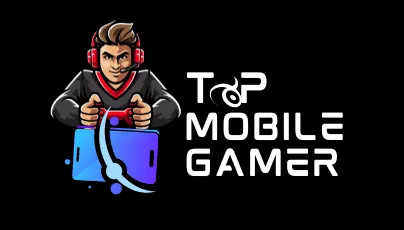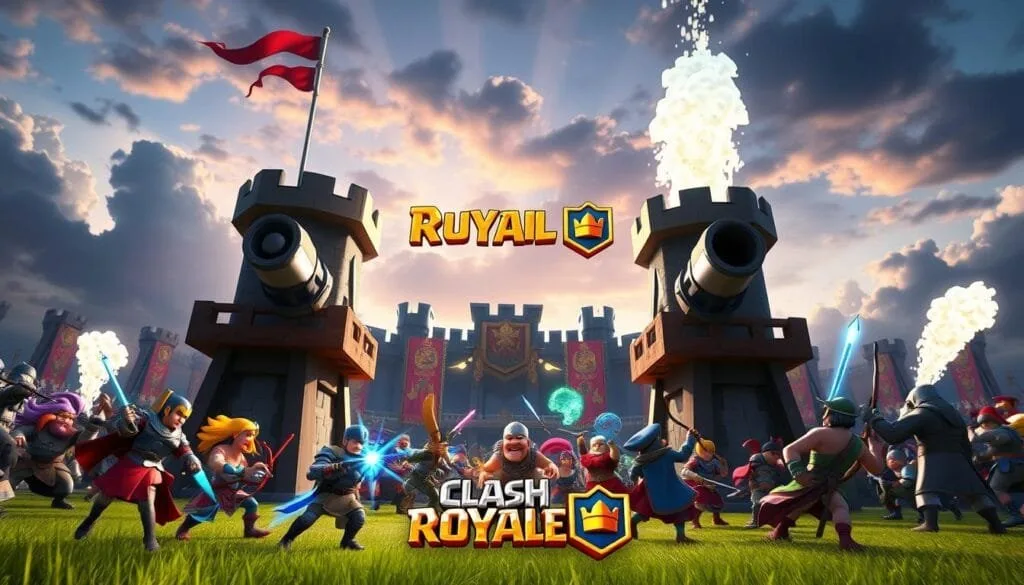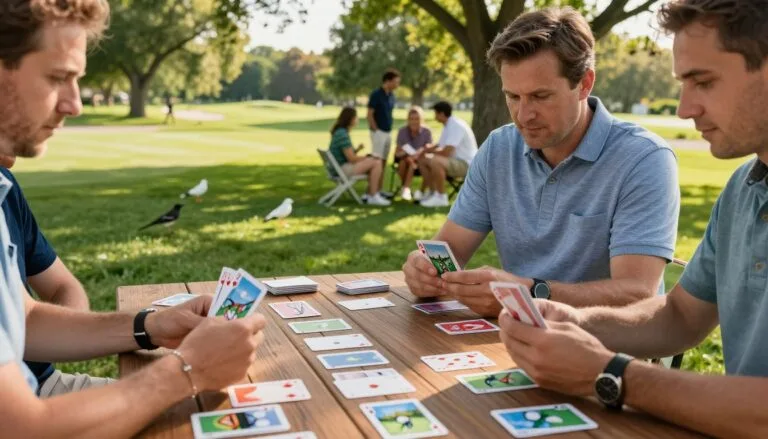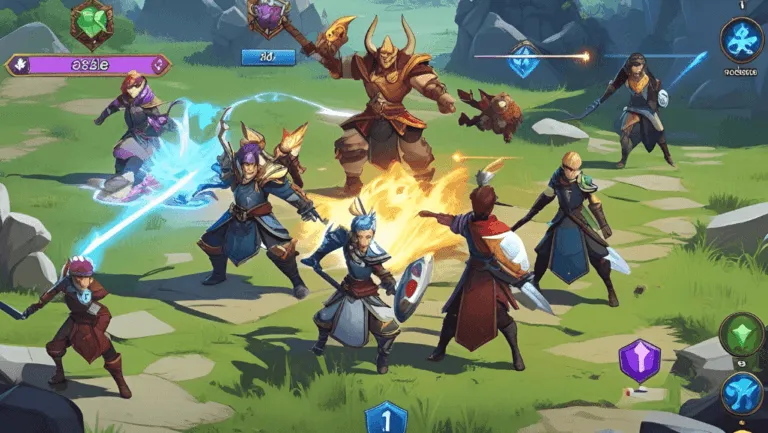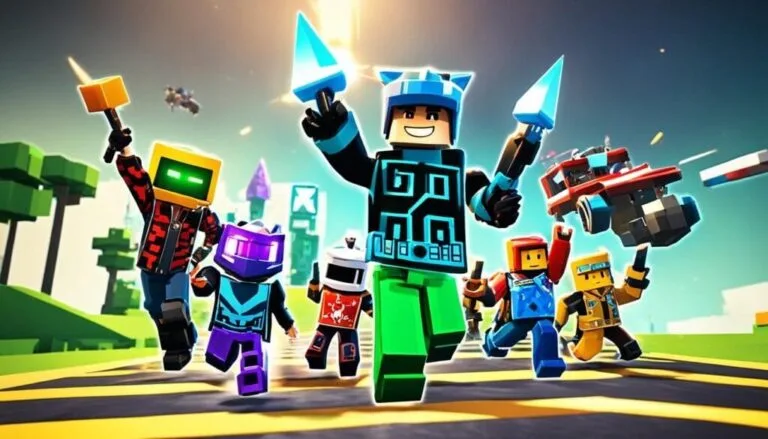Start your next commute or coffee break with confidence. Find the best mobile strategy games that deliver quick, deep play so you can lead, outthink, and win in short sessions. This roundup highlights real-time duels, tower sieges, survival sandboxes, and 4X epics built for a busy day.
Each pick shows why it stands out now: thoughtful mechanics, steady updates, and the thrill of one decisive move. You’ll get clear notes on gameplay, monetization, and modes so you can match a mobile strategy game to your pace and playstyle.
Smart, touch-first interfaces let you command units, micromanage resources, and optimize routes with taps instead of clunky menus. We also flag live events, seasonal metas, and alliance systems that keep players engaged and downloads strong — a key signal of long-term support.
Whether you favor rapid tactics or long-term builds, this guide helps you find a title that respects your time and rewards bold decisions. Explore more context and award mentions at strategy video game highlights. Jump to our picks (best for short sessions →) to find the right fit.
Key Takeaways
- Best mobile strategy: titles that balance depth with short-session design.
- Short sessions can still deliver deep, tactical gameplay.
- Touch-first controls improve command, pacing, and accessibility.
- Live events and steady updates sustain communities and content variety.
- Choose by mechanics, monetization fairness, and your preferred playstyle.
- Check downloads and developer support to gauge longevity.
Why Mobile Strategy Games Captivate Players on the Go
Bite-size encounters fold complex planning into moments you can finish between tasks. Mobile strategy and strategy games compress meaningful choices into short sessions, so a coffee break or a five-minute commute can teach you a new tactic or inch your progression forward.
The rise of bite-size tactics: quick sessions, deep strategy
Short rounds reward good choices. Typical match lengths for popular mobile strategy game modes range from 2–10 minutes, and each win or loss yields immediate feedback—resources, upgrades, or leaderboard movement—so gameplay feels continuously rewarding.
Touch-first input makes actions feel direct: dragging units, placing towers, and timing abilities convert taps into strategic moves. That immediacy helps real-time strategy titles create clutch moments on small screens.
Present-day popularity: downloads, ratings, and constant updates
Visible signals like high ratings and millions of downloads show what players prefer. Regular live-ops, balance patches, and seasonal content (often rolled weekly or monthly for top titles) keep systems fresh and user engagement steady.
- Seasons and live events refresh content on a predictable cadence, giving reasons to return.
- Social features—clans, leaderboards, and shared replays—let users trade tactics and celebrate wins.
- Genre variety—from tower defense to survival loops to small-squad real-time battles—means the best mobile strategy games fit many playstyles.
In short: these mobile strategy titles mix pick-up-and-play ease with systems that scale. That blend turns casual sessions into lasting progression and feeds steady development across the world of handheld gaming. Read on to see how we picked titles that balance fast onboarding with long-term depth.
How We Picked the Best: Ratings, Depth, and Real-Time Thrills
The question we asked: can a player learn the basics in minutes yet keep improving across months? Our picks prioritize fast onboarding plus deep systems that reward continued practice and insight.
Core criteria were weighted toward gameplay and live-ops: roughly 30% gameplay quality (mechanics and systems), 25% ongoing content cadence, 20% community and competitive health, 15% economy and progression fairness, and 10% technical polish and publisher track record.
Real-time excitement mattered. We favored games that create clutch moments through smart pacing and counters rather than titles that bury action behind long menus or opaque systems.
- Clear onboarding: tutorials and UX that get new players into a match within 10 minutes.
- Layered mechanics: systems that reveal depth over time without gating core gameplay.
- Competitive integrity: ranked seasons, active pvp queues, and fair matchmaking (examples include Clash Royale and TFT).
- Respectful economies: progression that rewards play while offering convenience purchases rather than pay-to-win advantages.
- Social systems and content: alliances, guild events, and steady seasonal content to extend a game’s lifespan.
Finally, we used market signals—ratings, download milestones, and steady update logs—to align quality with scale. Where a title shows multi-million downloads alongside regular patches, it’s more likely to deliver long-term value for players.
Got a title we missed? Share suggestions in the comments or via our quick survey so we can include community favorites in future updates.
Best Mobile Strategy Games: Editor’s Top Picks by Category
Here’s a compact roundup that maps standout titles to how they test your timing, planning, and reaction — and where each fits in the spectrum of mobile strategy play.
- PvP Arena & Card — Clash Royale (2016, 4.3★) pairs lightning-fast duels with clever card-cycling tempo. With reported downloads in the hundreds of millions and an active esports scene, Clash Royale is the go-to for short, high-intensity matches — best for quick reflex duels and ranked play.
- Classic tower defense — Kingdom Rush 5: Alliance TD & Rush Royale (Kingdom Rush: handcrafted stages, polished visuals; Rush Royale: lane-based combat with collectible progression). Tower defense remains a top mobile strategy format: think spatial planning, wave adaptation, and tactical hero swaps — ideal for players who prefer tactical pacing over split-second input.
- 4X kingdom builders — Rise of Kingdoms & Call of Dragons (4.5★ range): open maps, tech trees, and alliance objectives reward diplomacy, logistics, and long-term planning. These mobile strategy games are best when you enjoy empire growth and world-scale conflicts that unfold over days and weeks.
- Survival strategy — Whiteout Survival & Last War (4.1–4.6★): base management under pressure, resource triage, and event-driven progression. Survival titles emphasize decisions that balance short missions with long-term upgrades — great for players who like tense resource trade-offs.
- Tactics & Auto-battlers — TFT & DC: Dark Legion (4.5–4.7★): drafting, economy, and positioning define success. Auto-battlers and tactics games reward meta knowledge and flexible hero synergies, making them perfect for players who enjoy strategic combat that plays out automatically after setup.
- Indie standouts — Stick War: Legacy & Ant Legion (high ratings for focused design): smaller productions often deliver surprising depth with tighter mechanics and less intrusive monetization. Try these for concentrated strategic gameplay without heavy grind.
Quick note: these picks cover the variety of mobile strategy experiences — from real-time battles to turn-like tactical planning and world-scale 4X systems. For each entry, check the store pages (iOS / Android) for the latest ratings, downloads, and current monetization models before you install. For a longer list and playstyle matchups, see our extended roundup at 10 great picks to play.
Deep Dives: What Makes These Games Strategic Powerhouses
Deep systems hide inside quick matches, so each decision echoes through later rounds. Below we break down key mechanics and strategic elements that let a handful of standout titles teach planning, adaptation, and timing within short sessions.
Clash Royale — tempo, punishes, and fast meta reads
Core mechanics: 8-card decks, elixir management, and lane pressure. Clash Royale rewards tempo control: punish an overextension, force mistakes, and convert small advantages into tower wins. With match lengths typically under five minutes, it’s built for mobile real-time duels and high-frequency practice.
Who it’s for: players who like quick reflex duels and ranked ladder play. Quick tip: use a low-cost cycle card to pressure an opponent’s rotation and punish with a heavy counter when they’re low on elixir.
Rise of Kingdoms & Call of Dragons — diplomacy, logistics, and scale
Core mechanics: open-world maps, tech trees, and coordinated alliance objectives. These 4X-style mobile strategy games emphasize scouting, resource node control, and timed rallies — where logistics and diplomacy often decide large battles more than a single fight’s micro.
Who it’s for: players who enjoy long-term empire growth and world-scale strategic planning. Quick tip: assign scouts to probe enemy builds early and reserve rally windows when alliance members can join.
Kingdom Rush & Rush Royale — spatial thinking and wave adaptation
Core mechanics: tile-based tower placement, hero swaps, and wave-specific counters. Tower defense demands spatial foresight: a single tower placement or a timely hero ability can swing a wave and preserve progression.
Who it’s for: players who love tactical placement and incremental optimization. Quick tip: prioritize combo synergies (damage + slow, or splash + debuff) to handle burst waves efficiently.
Whiteout Survival & Last War — resource triage and event urgency
Core mechanics: base development, morale systems, and event-driven progression. Survival strategy compresses tough trade-offs into short missions; upgrade choices often force a choice between immediate safety or long-term power.
Who it’s for: players who enjoy tense resource management under pressure. Quick tip: stagger upgrades during events to maintain raid defenses while progressing research.
TFT & DC: Dark Legion — drafting, economy, and carry planning
Core mechanics: drafting, interest-based economy, and hero synergies. Auto-battlers turn setup into the main strategic decision: your drafting and economy choices determine whether you have a late-game carry or run out of options.
Who it’s for: players that prefer strategic setup over twitch input. Quick tip: balance rolling and saving based on your win/lose streak to maximize interest gains and variance control.
- Foresight matters: scouting, build orders, and early information exposure drive better decisions.
- Progression expands options: upgrade trees and hero systems open new strategic layers without blocking core gameplay.
- Learning loops: short matches create repeatable practice loops — every match informs the next queue.
Across these genres, the common thread is systems that reward both short-term reads and long-term investment: whether that’s mastering elixir timing, coordinating alliance logistics, or optimizing tower synergies, the best mobile strategy games let you grow as a player in small, meaningful chunks.
On-the-Go Optimization: Controls, Monetization, and Update Cadence
Responsive taps and tidy menus turn a few spare minutes into meaningful play. Good mobile strategy design trims load times, surfaces context-sensitive tooltips, and guides new players into real matches quickly. That slipstream lets each short session focus on strategic choice, not fiddly setup.
Touch-first controls and quick-session design
Direct input matters. Favor large touch targets, one-tap confirmations, and drag-to-place interactions so a player can set a defense, swap a hero, or launch an assault in under ten taps. Readable icons, cached loadouts, and tight maps keep clutch calls clear on small screens and support mobile real-time battles without frustration.
Free-to-play elements: fair PvP, pacing, and value purchases
Progress systems should reward time and skill, not just dollars. Aim for matchmaking that prioritizes skill bands, short queues, and steady rewards so competitive outcomes reflect gameplay more than spending. Recommended monetization for respectful mobile strategy games: cosmetics, season passes that add convenience, and small convenience bundles that don’t gate core mechanics.
Live-ops and steady content cadence
Events, rotating challenges, and clear patch notes keep content fresh and give players reasons to return. Top titles publish predictable cadences — weekly challenges, monthly seasons, and biweekly balance patches are common — which helps communities plan and keeps metas evolving.
- Short queues and cached loadouts speed re-entry so players can squeeze in matches between tasks.
- Catch-up milestones and daily login rewards welcome returning users and reduce friction.
- Social tools (clans, chat, shared replays) let players trade tactics and celebrate wins, boosting retention.
Performance and device considerations
Keep graphics scalable and battery impact low. Offer low/medium/high visual presets, a download-size summary on the store page, and an option to disable heavy effects for extended sessions. Note iOS / Android differences in background behavior and permission models to avoid surprise disconnects during live matches.
Quick checklist for designers & reviewers
- Touch targets ≥ 44px, one-tap primary actions, clear undo where possible.
- Short session loop: matchmaking + match + rewards in under 10–15 minutes for real-time modes.
- Monetization: prioritize cosmetics, battle passes, and convenience bundles over pay-to-win power.
- Live-ops cadence: weekly events, monthly seasons, and transparent patch notes.
- Performance: scalable visuals, battery-saver mode, and clear download size on store pages.
Quick Comparisons: Strategy Depth, War Scales, and PvP Intensity
Strategy unfolds differently depending on whether you play on the quiet board or in a live arena. That contrast helps players pick the format that fits their focus and heart.
Chess vs. Clash Royale: timeless theory vs. real-time adaptability
Chess models perfect-information, turn-based strategy: long-term planning, memorized openings, and deep endgame technique define success. Session length varies, but study and incremental practice are the route to mastery.
Clash Royale turns that theory into mobile real-time action. Matches average under five minutes and reward on-the-fly reads, timing, and tempo control; its meta shifts with balance patches and rewards reactive tactics and quick adaptations — ideal for players seeking real-time battles and fast ranked play.
Which to choose: pick chess-like formats for deep, study-heavy strategic foundations; pick Clash-style arenas for high-frequency, reactive PvP bursts.
Small-squad tactics vs. world-scale alliance wars
Small-squad tactics (e.g., squad-based arena duels or tactics skirmishes) prize precision: individual placement, timing, and micro-decisions decide short battles. Typical sessions are short, focused, and high-intensity.
World-scale alliance wars (4X kingdom builders and MMO strategy cores) demand logistics, scouting, and diplomacy across open worlds. These modes require coordination over hours or days; leadership, resource planning, and strategic timing often outweigh single-battle heroics.
Which to choose: choose small-squad modes for quick, repeatable practice and tight strategic combat; choose world-scale modes if you like long-term management, alliances, and strategic depth that unfolds over time.
- Session length: small-squad matches often run 2–10 minutes; world-scale conflicts unfold across days.
- Learning curve: turn-based formats reward study; real-time strategy emphasizes reflexes and adaptive decision-making.
- Social features: small squads lean on quick co-op and clan support; large wars depend on alliance coordination and shared objectives.
In the end, whether you favor calculated openings or reactive flanks, the same drive — study, practice, iterate — shapes the path to mastery. Try mixing formats: short, real-time matches sharpen your reactions while longer 4X play expands your strategic toolkit for world-scale command.
Conclusion
Choose a title that fits how you like to think: quick reflex duels, slow planning, or a blend of both. Let short sessions stack into real experience so each battle teaches something useful — whether you’re chasing wins in short PvP matches or building an empire over weeks.
Value steady development and clear content updates. Favor releases with transparent patch notes, predictable seasons, and healthy download numbers. Those signals increase the odds that your time investment continues to pay off as new game modes and balanced updates arrive.
Look for honest systems where dollars speed convenience, not outcomes: cosmetics, season passes, and convenience bundles keep competition fair while supporting developers. Join alliances, try live events, and use practice matches to watch your hero calls, build orders, and kingdom plans improve with experience.
Ultimately, pick the game that sparks curiosity and makes you feel bold. That’s how players rise, learn, and win on their own terms — across mobile strategy games, tower defense, auto-battlers, and 4X worlds alike.
